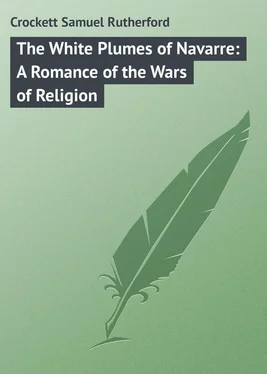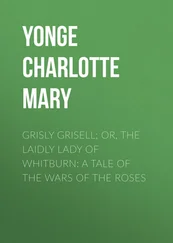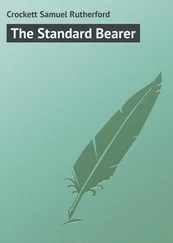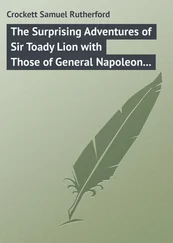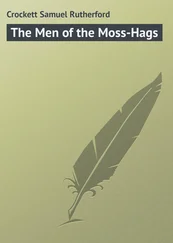Samuel Crockett - The White Plumes of Navarre - A Romance of the Wars of Religion
Здесь есть возможность читать онлайн «Samuel Crockett - The White Plumes of Navarre - A Romance of the Wars of Religion» — ознакомительный отрывок электронной книги совершенно бесплатно, а после прочтения отрывка купить полную версию. В некоторых случаях можно слушать аудио, скачать через торрент в формате fb2 и присутствует краткое содержание. ISBN: , Жанр: foreign_prose, на английском языке. Описание произведения, (предисловие) а так же отзывы посетителей доступны на портале библиотеки ЛибКат.
- Название:The White Plumes of Navarre: A Romance of the Wars of Religion
- Автор:
- Жанр:
- Год:неизвестен
- ISBN:http://www.gutenberg.org/ebooks/33215
- Рейтинг книги:3 / 5. Голосов: 1
-
Избранное:Добавить в избранное
- Отзывы:
-
Ваша оценка:
- 60
- 1
- 2
- 3
- 4
- 5
The White Plumes of Navarre: A Romance of the Wars of Religion: краткое содержание, описание и аннотация
Предлагаем к чтению аннотацию, описание, краткое содержание или предисловие (зависит от того, что написал сам автор книги «The White Plumes of Navarre: A Romance of the Wars of Religion»). Если вы не нашли необходимую информацию о книге — напишите в комментариях, мы постараемся отыскать её.
The White Plumes of Navarre: A Romance of the Wars of Religion — читать онлайн ознакомительный отрывок
Ниже представлен текст книги, разбитый по страницам. Система сохранения места последней прочитанной страницы, позволяет с удобством читать онлайн бесплатно книгу «The White Plumes of Navarre: A Romance of the Wars of Religion», без необходимости каждый раз заново искать на чём Вы остановились. Поставьте закладку, и сможете в любой момент перейти на страницу, на которой закончили чтение.
Интервал:
Закладка:
He lifted his gloved hand, and from the fingers blew a kiss in the direction of the north, daintily as a girl upon a high terrace to a lover over the sea.
And so by the river-side, in the golden light of the afternoon, they rode forward to Blois.
In the rear Jean-aux-Choux continued to mutter to himself, trudging heavily along on his Flanders mare, laden with cloaks and provend, "'Tis all very well – very well – but what does his golden dukeship propose to do with me? I will not leave my little mistress alone in a strange city, and with a man who, though ten times a professor at the Sorbonne, is no more kin to her than I am to this fat-fetlocked Flemish brute."
He pondered a little, dropping gradually behind. But as soon as they had passed the gates of the city, he guided his beast into the first little alley, letting the cavalcade go on, amid much craning of necks from the windows, towards the royal pavilion where D'Epernon was to lodge.
"I will seek out Anthony Arpajon, that good man of the Faith," he said. "He has a stable down by the water-side, and being a lover of the learned, he will give me bite and sup for teaching him some scraps of Greek wherewith to puzzle the wandering Lutheran pastors. For a Calvinist stark is Anthony, and only wants a head-piece like mine to be a clever man. But he hath an arm and a purse. And for the rest, I will load him up with the best of Greek, and also teach him to read the Institutions of John Calvin , my first and greatest master!"
So through the narrow streets of Blois he made his great mare push herself lumberingly, crying out whenever there was a crowd or a busy street to cross, "Hoo! hoo! hoo! Make way for the King's fool – for Jean-aux-Choux – for the fool – the King's fool!"
CHAPTER XI.
THE BEST-KNOWN FACE IN THE WORLD
Jean-aux-Choux dismounted from his Flanders mare at the entrance of a wide courtyard, littered with coaches and carriages, the best of these being backed under a sort of penthouse, but the commoner sort set out in the yard to take the bitter weather with the sweet. Some had their "trams" pitifully uplifted to heaven in wooden protestation against such ill-treatment; some wept tears of cracked pitch because the sun had been too much with them. Leathern aprons of ancient diligences split and seamed with alternate rain and drought. Everywhere there was a musty smell of old cushion-stuffing. A keen whiff of stables wandered past. Not far off one heard the restless nosing of horses in their mangers, and from yet another side came the warm breath of kine.
For Master Anthony Arpajon was a bien man, a man of property, and so far the Leaguers of Blois had not been able to prevail against him. In the courtyard, stretched at length on sacks of chaff, their heads on their corn-bags, with which, doubtless, on the morrow they would entertain their beasts by the way, many carters and drivers of high-piled wine-chariots were asleep.
The lower part of Master Anthony's house was a sort of free hostel, like the caravanserai of the East. The upper, into which no stranger was permitted to enter on any pretext, was like a fortified town.
To the left of the entrance, a narrow oblong break in the wall made a sort of rude buffet. Sections of white-aproned, square-capped cooks could be seen moving about within. Through the gap they served the simpler hot meats, bottles of wine, bread, omelettes, and salads to the arriving guests. It was curious that each, on going first to the barrier, threw the end of his blue Pyrenean waist-band over his shoulder. A little silver cow-bell, tied like a tassel to the silk, tinkled as he did so.
For this was the chosen sign of the men of Bearn. All the warring Protestants, and especially the Calvinists of the south, had adopted it, because it was the symbol of the arms of Bearn. And wherever it was unsafe to wear the White Plume of the hero on the cap, as in the town of Blois, it was easy to tuck the silver cow-bell of King Henry under the silken sash, where its tinkling told no tales.
But among these wine-carriers and free folk of the roads there was scarcely one who did not know Jean-aux-Choux. Yet they did not laugh as he entered, but rather greeted him respectfully, as one who plays well his part, though he came in shouting at the top of his voice, "Way for the fool of fools – the fool of three kings – and not so great a fool as any one of them!"
One man came forward, speaking the drawling speech of Burgundy, all liquid "l's" and slurred "r's," and with a clumsy salute took the Jester's beast. Many of the others rose to their feet and made their reverences according to their kind, clumsy or clever. Others whispered quietly, passing round the news of his arrival.
For the fool had come to his own. He was no more Jean-aux-Choux, the King's fool, but Master John Stirling, a Benjamin of the Benjaminites, and pupil of John Calvin himself.
The white-capped man behind the bar opened carefully a little door, and as instantly closed it behind Jean.
He pointed up a narrow stair which turned and was lost to sight in the thickness of the wall.
"You will find them at prayers," he muttered. "He is there."
"Kings are in His hand," responded Jean-aux-Choux, setting a foot on the first worn step of the narrow stair-case; "the Lord of Battles preserve him from the curs that yelp about his feet."
There came to Jean a sound of singing – sweet, far away, wistful, a singing not made for the chanting of choirs or the clamour of organs, but for folk hiding on housetops, in dens and caves of the earth – soft singing, with the enemy deadly and near at hand. The burden of their melody was that thirty-seventh Psalm which once on a time Clement Marot had risked his life to print.
"Wait on the Lord! Meekly thy burden bear;
Commit to Him thyself and thine affair!
In Him trust thou, and He will bring to pass
All that thou wouldst accomplish and compass.
Thy loss is gain – such is His equity,
Each of His own He guards eternally.
This lesson also learn —
He clasps thee closer as the days grow stern."
Jean opened the door. It was a long, black, oak-ceiled room into which he looked. There were perhaps a score of Huguenots present, all standing up, with Marot's little volume of the Trente Psaumes in their hands. A pastor in Geneva gown and bands stood at a table head, upon which a few great folios had been heaped to form a rude pulpit.
Beside him, not singing, but holding his psalter with a certain weary reverence, was a man with a face the best-known in all the world. And certainly Henry of Navarre never looked handsomer than in the days when pretty Gabrielle of the house of D'Estrees played with fire, calling her Huguenot warrior, "His Majesty of the Frosty Beard."
Such a mingling of kindliness, of humour bland and finely tolerant, of temper quick and high, of glorious angers, of swift, proud sinnings and repentances as swift, of great eternal destinies and human frailties, never was seen on any man's face save this.
It was "The Bearnais" – it was Henry of Navarre himself.
So long as the singing went on Jean-aux-Choux stood erect like the rest. Then all knelt at the prayer – the King also with them – on the hard floor under that low, black pent-roof, while the pastor prayed to the God of Sabaoth for the long-hoped-for victory of "His Own."
Beside "His Own" knelt Jean-aux-Choux, a look of infinite solemnity on his face, while the grave Genevan "cult" went quietly on, as if there had not been a Catholic or an enemy within fifty miles. The minister ceased. The King, without lingering on his knees as did the others, rose rapidly, mechanically dusting his black cloth breeches and even the rough carter's stockings which covered his shapely calves.
Читать дальшеИнтервал:
Закладка:
Похожие книги на «The White Plumes of Navarre: A Romance of the Wars of Religion»
Представляем Вашему вниманию похожие книги на «The White Plumes of Navarre: A Romance of the Wars of Religion» списком для выбора. Мы отобрали схожую по названию и смыслу литературу в надежде предоставить читателям больше вариантов отыскать новые, интересные, ещё непрочитанные произведения.
Обсуждение, отзывы о книге «The White Plumes of Navarre: A Romance of the Wars of Religion» и просто собственные мнения читателей. Оставьте ваши комментарии, напишите, что Вы думаете о произведении, его смысле или главных героях. Укажите что конкретно понравилось, а что нет, и почему Вы так считаете.
